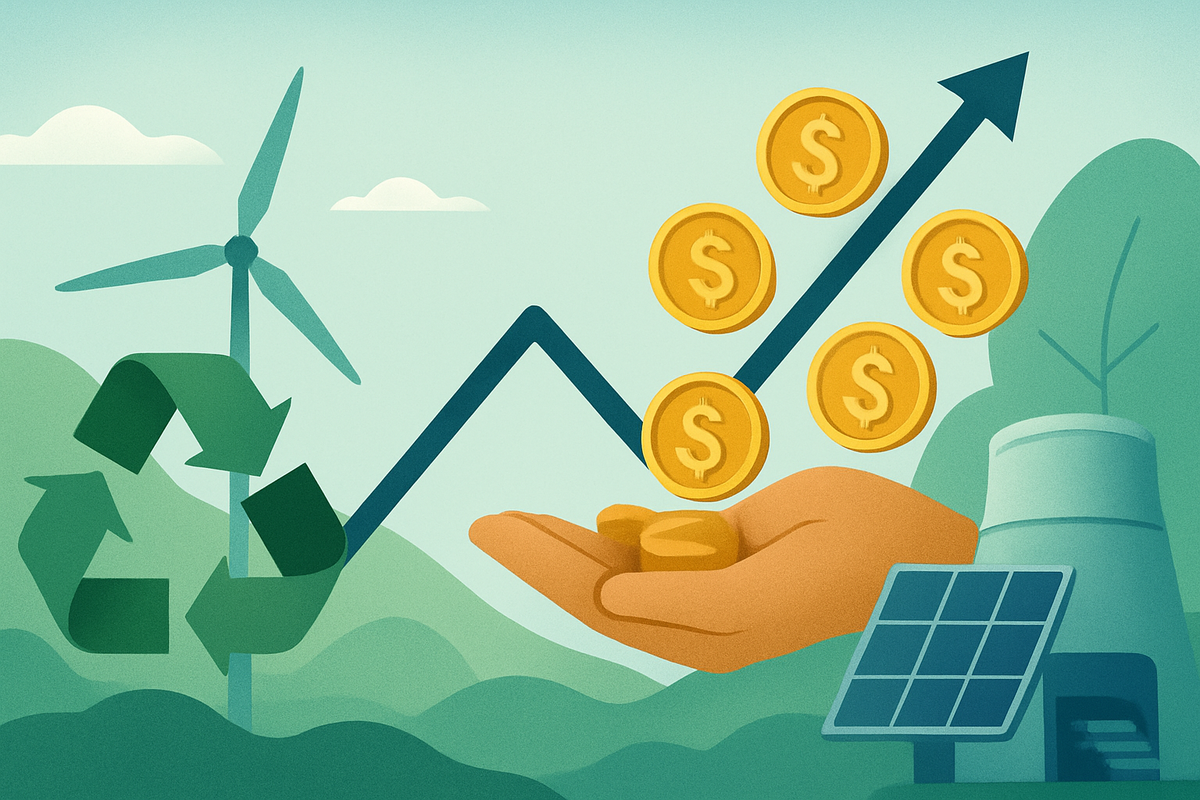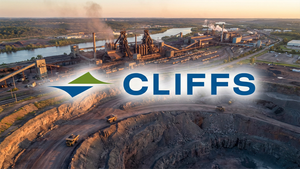
Waste Management (NYSE: WM) has announced a quarterly cash dividend of $0.825 per share, maintaining its consistent payout to shareholders. Declared on November 13, 2025, with a record date of December 5, 2025, and a payment date set for December 19, 2025, this declaration underscores the company's robust financial health and its unwavering commitment to returning value to investors. The move, which aligns with previous payouts, did not trigger significant immediate market volatility, instead reinforcing investor confidence in the waste management giant's stable operational performance and predictable capital allocation strategy.
This latest dividend declaration serves as a testament to Waste Management's long-standing dedication to its shareholders. With a remarkable track record of increasing its dividend for 21 to 22 consecutive years, the company has established itself as a reliable income generator in the utilities and environmental services sector. The $0.825 per share payout, consistent with prior distributions, reflects a healthy dividend payout ratio of approximately 50.78% to 51.97%, indicating a sustainable balance between rewarding shareholders and retaining capital for future growth and strategic investments. While the announcement itself prompted a neutral market reaction, analysts maintain a largely positive outlook, with a "Buy" consensus and average target prices ranging from $244.36 to $248.44, signaling continued confidence in WM's fundamental strength and future prospects.
Consistent Dividends Fortify WM's Market Leadership and Investor Appeal
Waste Management's (NYSE: WM) consistent dividend policy is a cornerstone of its financial strategy, significantly enhancing its stock performance, investor appeal, and competitive standing within the waste management industry. With an impressive 22 consecutive years of dividend increases, WM has cultivated a reputation as a stable, income-generating investment, particularly attractive to income-focused and long-term investors. The current annual dividend of $3.30 per share ($0.825 quarterly) is supported by a conservative payout ratio of around 50-51% of earnings, demonstrating ample capacity for both shareholder returns and reinvestment in growth initiatives. This financial discipline not only signals corporate health but also contributes to the stock's lower volatility compared to the broader market, making it a defensive play during economic uncertainties.
The company's robust financial health, underscored by its dividend consistency, provides a substantial competitive advantage. As the largest non-hazardous waste operator in North America, Waste Management benefits from a wide economic "moat" built on its extensive infrastructure, including nearly 400 collection operations, 249 active solid waste landfills, 297 transfer stations, and 104 recycling centers. This scale translates into significant economies of scale, cost efficiencies, and high barriers to entry for competitors. Furthermore, strong free cash flow generation allows WM to strategically invest in sustainable initiatives, service debt, and pursue accretive acquisitions, such as its recent integration of Stericycle, expanding its medical waste and secure information destruction services.
While Waste Management's financial prowess benefits its shareholders, it also sets a high bar for its competitors. Major players like Republic Services (NYSE: RSG) and Waste Connections (NYSE: WCN) also offer dividends, but WM's consistent growth and higher return on invested capital (5.86% historically compared to RSG's 4.55%) suggest greater efficiency in capital deployment. Smaller or more regionally focused competitors, such as GFL Environmental (TSX: GFL) and Casella Waste Systems (NASDAQ: CWST), might find it challenging to match WM's investment capacity in infrastructure, technology, and strategic acquisitions. WM's superior access to capital and lower cost of capital can make it difficult for these firms to compete on large-scale projects or sustained infrastructure development, reinforcing WM's dominant market position.
WM's Dividend Reflects Broader Industry Evolution Towards Sustainability
Waste Management's (NYSE: WM) consistent dividend policy is not merely a reflection of its individual financial strength but also serves as a critical indicator of how established industry leaders are navigating and shaping broader trends within the waste management sector. The industry is undergoing a significant transformation, moving towards a circular economy model, driven by intensified regulatory scrutiny, increasing emphasis on Environmental, Social, and Governance (ESG) factors, and rapid technological innovation. WM's ability to maintain and grow its dividend while simultaneously investing heavily in these areas highlights a resilient business model that can adapt to and profit from these shifts.
The substantial cash flow that underpins WM's dividend allows it to make significant capital expenditures in sustainability initiatives. This includes ambitious goals such as reducing greenhouse gas emissions, converting its fleet to alternative fuels, utilizing renewable energy at its sites, and investing in advanced recycling infrastructure. By appointing a Chief Sustainability Officer and actively collaborating with regulatory bodies like the U.S. EPA, WM sets a high standard for environmental stewardship. This proactive approach to sustainability, funded by its robust financial performance, not only ensures compliance with evolving regulations but also enhances its appeal to ESG-conscious investors, potentially leading to inclusion in sustainability indices and further share price appreciation.
The ripple effects of WM's strategy are felt across the industry. Its heavy investments in cutting-edge sustainable technologies pressure competitors to accelerate their own green initiatives, potentially straining the resources of smaller players and contributing to industry consolidation. For partners, such as municipalities and businesses, WM's advanced capabilities in recycling, waste-to-energy, and comprehensive sustainable services become highly attractive, often leading to preferential partnerships. Historically, the waste management sector has been known for stable cash flows and consistent dividends, with WM often setting the benchmark. Its sustained dividend growth, even amidst evolving regulations like the Resource Conservation and Recovery Act (RCRA), demonstrates a business model capable of adapting to an increasingly environmentally conscious landscape without compromising investor returns.
Navigating Future Horizons: WM's Strategic Path Forward
Waste Management's (NYSE: WM) consistent dividend declaration, set against a backdrop of substantial strategic investments in sustainability, positions the company for a dynamic future within the evolving waste management sector. In the short term, WM is focused on integrating its recent acquisitions and realizing operational efficiencies from its sustainability investments. Despite a recent earnings miss in Q3 2025 due to softer recycled commodity prices and lower healthcare revenue, analysts remain confident in WM's strategic expansion and operational improvements. The successful integration of the Stericycle acquisition, with projected annual synergies of $250 million by 2027, is a key catalyst for near-term growth, alongside anticipated revenue increases of 15.9% in 2025 and 5.4% in 2026.
Looking further ahead, WM is strategically positioned to lead the industry's transition towards a circular economy. Its substantial investments, totaling over $2.8 billion from 2022 through 2026, are aimed at advanced recycling facilities, renewable natural gas (RNG) production, and cutting-edge technologies like AI and IoT. These initiatives are not just about environmental stewardship; they are about transforming WM into a high-tech environmental leader with diversified revenue streams, reducing reliance on traditional landfill operations and mitigating commodity price volatility. By expanding its RNG production, for instance, WM expects to generate between 11 and 12 million MMBtu in 2025, with significant EBITDA projections by 2027.
However, this path is not without its challenges. The industry faces increasing waste volumes and complexity, volatile commodity prices, and significant infrastructure gaps. Regulatory inconsistencies and community opposition to new facilities (NIMBYism) can also hinder development. Nevertheless, WM's dominant market share in landfill ownership, coupled with its strategic "tuck-in" acquisitions and strong free cash flow generation (Bernstein forecasts a 20% CAGR for free cash flow from fiscal year 2025-2028), enhances its competitive moat. Potential scenarios range from steady growth through sustainable integration, where WM maintains leadership in traditional services while growing its renewable and recycling contributions, to an optimistic outcome where it becomes a global leader in circular economy solutions, driven by aggressive adoption of AI and automation. Conversely, a pessimistic scenario could see prolonged commodity price volatility and challenging acquisition integrations impacting profitability and dividend growth.
Sustained Value: WM's Enduring Impact on Markets
Waste Management's (NYSE: WM) declaration of a consistent $0.825 quarterly dividend underscores its enduring financial stability and strategic foresight, cementing its role as a reliable investment in a dynamic market. This consistent payout, part of a 22-year streak of dividend increases, highlights a company that effectively balances shareholder returns with aggressive investments in future-proof initiatives. WM's market position remains dominant, bolstered by its extensive infrastructure and strategic acquisitions like Stericycle, which diversifies its revenue streams into high-growth areas like medical waste and renewable natural gas.
Moving forward, WM is not just a waste management company; it's evolving into a comprehensive environmental solutions provider. Its significant capital allocation towards advanced recycling, RNG production, and technological innovations like AI and IoT is transforming the company into a leader in the circular economy. This strategic pivot not only enhances its operational efficiency and reduces environmental impact but also positions it to capitalize on increasing global demands for sustainable waste practices and stricter environmental regulations. The company's resilient business model, underpinned by predictable cash flows from essential services, offers a defensive investment during market volatility, appealing to a broad spectrum of investors.
For investors, the coming months will be crucial to observe WM's execution on its 2025 guidance, particularly regarding the integration of Stericycle and the realization of projected synergies. Monitoring the performance of its sustainability investments, especially in renewable natural gas, will be key to understanding its long-term growth trajectory. Additionally, attention should be paid to WM's continued M&A activity, including any "fairly sizable" acquisitions planned for the latter half of 2025, and the broader trends within the waste management sector, such as the rapid growth of e-waste and the increasing adoption of smart waste management technologies. WM's ability to navigate these complexities while consistently delivering shareholder value will define its lasting impact as a market leader.
This content is intended for informational purposes only and is not financial advice




